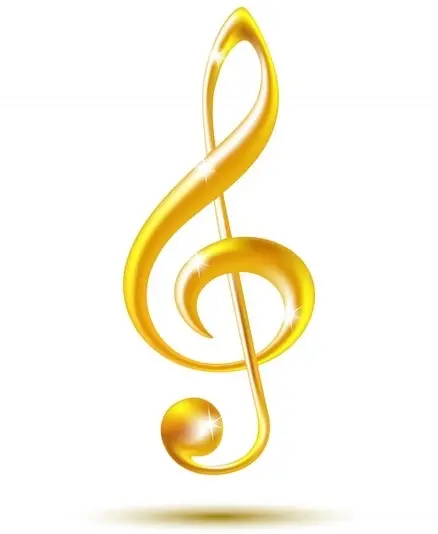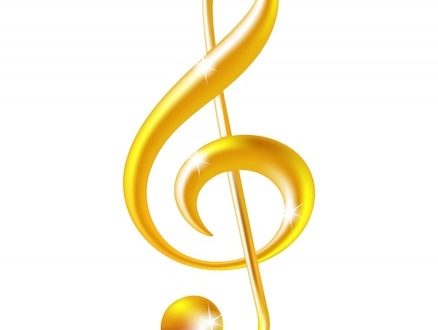
Musical societies |
Musical societies – associations of prof. musicians and music lovers, aiming to spread the music. culture, propaganda and study of otd. types of music lawsuit. There are national and international O. m.; they are divided into performing (choral, orchestral, chamber), scientific and educational, there are also creative (composing, musicological). The origin of O. m., as one of the forms of musical societies. activities, dates back to the late Middle Ages and is associated with the existing at that time chants. schools; later O. m. received independent. development. Their prototypes were the academies that arose in the 16th century. in Italy and engaged in Ch. arr. performance of music by their members. A similar kind of O. m., the so-called. Collegium Musicum appeared in Germany and other countries. Mountain growth. music culture in the 18th century, the development of public. conc. life contributed to the emergence of new organizational forms of musical and social activities, primarily concert (so-called philharmonic.) muses. ob-in and mus.-perform. associations: in England – the Academy of Early Music (1710), in Austria – the Viennese Society of Musicians (1771); Society of Concerts of the Paris Conservatory (1792), etc.
In the beginning. 19th century in Germany, Austria, Switzerland, husbands were common. choir. ob-va – Liedertafel (the first in Berlin, 1809), later loves. choir. ob-va (“Orpheon”) appeared in France (the first in 1835). O. m from the 2nd floor received wide distribution. 19th century Among the most significant: General German. music union (founded in 1859 by F. Brendel, L. Keller, and others, its goal was to organize annual musical festivals held in various cities of Germany), the National Musical Society (Paris, 1871), the Society of Peoples. songs (London, 1898), etc. In connection with the increased interest in the work of the department. major composers and to promote their products. (performance, publication of complete collections of works, release of so-called temporary books, etc.) there are special. O. m .: Bachovskoe (Leipzig, 1850), Handel (Hamburg, 1856), G. Purcell (London, 1876), Universal Wagner (Bayreuth, 1883), etc. With the development of research. works in the field of musicology are organized by musicologists. about-va, publishing scientific. magazines, collections, bulletins. The first of them is the Society of Music. research, it was the main in 1868 in Germany by F. Kommer and R. Eitner (existed until 1906); published monthly scientific papers. collections: “Monatshefte für Musikgeschichte” (1869-1905).
In Russia, O. m. began to appear in the last quarter of the 18th century. and were originally called clubs – the first in St. Petersburg in 1772 (see “Music Club”). Large O. m., who united prof. musicians (orchestra), was the main. in 1802 the St. Petersburg Philharmonic Society. In 1840, the Symphony Society arose in St. Petersburg, and in 1850, the Concert Society, which promoted classical music. music. In 1859, the largest Russian musical society was organized (which later opened branches in many cities), the purpose of which was the development of prof. music education in Russia. This about-in led also systematic. conc. activities in St. Petersburg, Moscow and other cities where its branches existed. In Moscow in 1874 the Society of Rus. dram. writers and opera composers in order to protect the material interests of its members (in 1877, the composers P. I. Tchaikovsky, A. G. Rubinshtein, M. P. Mussorgsky, etc.) in 1878 – the Moscow Philharmonic Society. Among other Russian. prerevolutionary O. m.: St. Petersburg Society of Chamber Music, St. Petersburg. music-drama. a circle of amateurs (founded in 1883), which organized annual opera performances (for the first time in St. Petersburg, they performed the post. Opera “Eugene Onegin”, 1877), St. Petersburg. Society of Music meetings (founded in the 1884s, aimed at familiarizing members of the society with musical production and musical critical literature; publishing house Izvestia …, see Musical magazines), St. Petersburg. Society of Music teachers and other muses. figures (1890-1899; under him there was a music intermediary bureau, a choir, strings and wok quartets), the Church. chanter Benefits. society (founded in St. Petersburg in 1908 on the initiative of the chorus conductor A. A. Arkhangelsky; annually arranged concerts of sacred music), Moscow Liedertafel, Moscow. Society of Lovers of Orchestral, Chamber and Vocal Music (founded in 1902 by conductor A. Litvinov), Circle of Russian Music Lovers (Moscow, 1895-1896), House of Song (Moscow, 1912-1908), Musical Theoretical Library “(Moscow, 18-1908). Musical music also existed in a number of other cities (see also Evenings of Contemporary Music, Musical Exhibitions).
After Oct. revolutions of 1917 societies were created. music organizations: Association of Contemporary Music (Leningrad, Moscow), Russian Association of Proletarian Musicians; Association of revolutionaries composers and musicians figures (ORKIMD; 1925-32), All-Ukrainian Society named after. N. D. Leontovich (1921-28), All-Ukrainian Association of Revolutionaries. musicians (1928-32). In 1931-35 there was an Intern. music The bureau is an association of workers and revolutionaries. music organizations of Austria, Germany, USA, USSR, France, Japan, who worked at the Intern. association of revolutionaries. t-ra (MORT) and published the bulletin “International Music” (since 1933). In 1939 in Moscow, the main. Union of Composers of the USSR – creative. association of owls composers and musicologists, in 1957 – the All-Russian Choir. about-in, etc.; choir. about-va are created in Ukraine, in Belarus, Armenia and other republics. There are unions of composers and performers in other countries, as well as many others. intl. O. m., the first of which was Intern. music society (1899-1914) – an association of musicologists, which had a nat. sections in many countries (held congresses, published reports, published journals). Among the currently existing O. m .: International Society for Contemporary Music, International Society for Musicology, Intern. music association. libraries, International Society of Music education, International council of people music, etc. Many of them are members of the International Music Council at UNESCO.
I. M. Yampolsky



